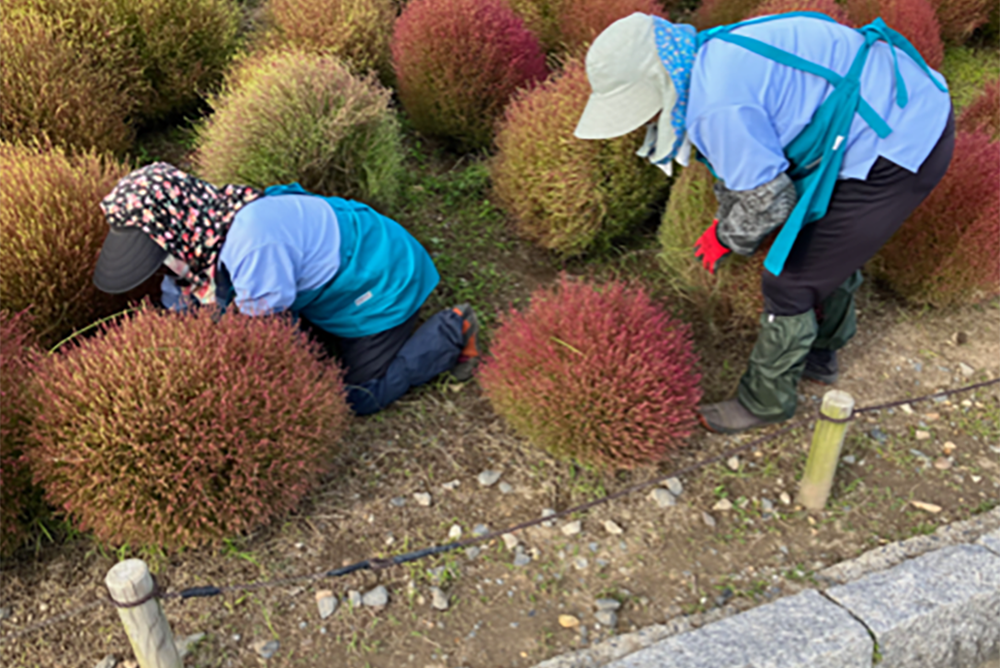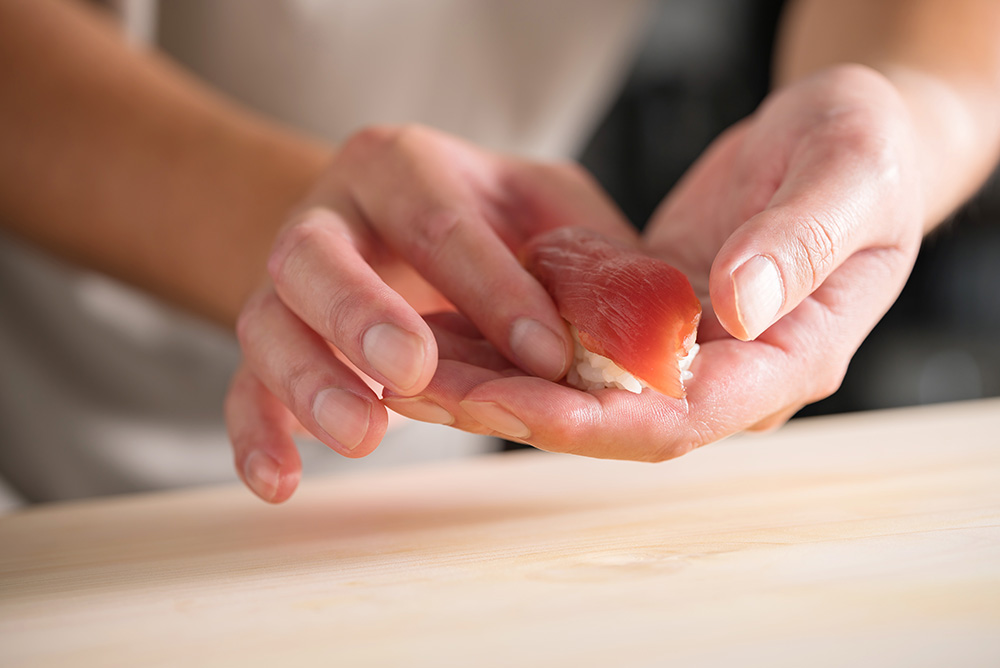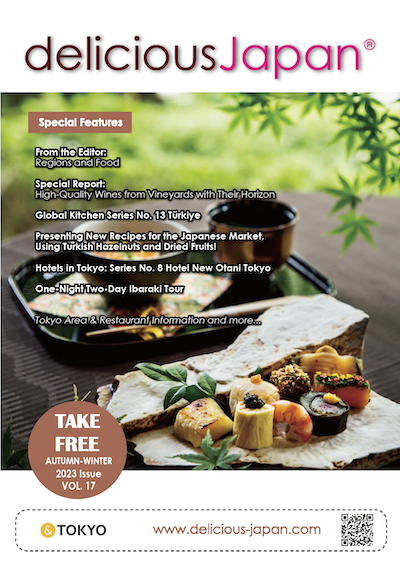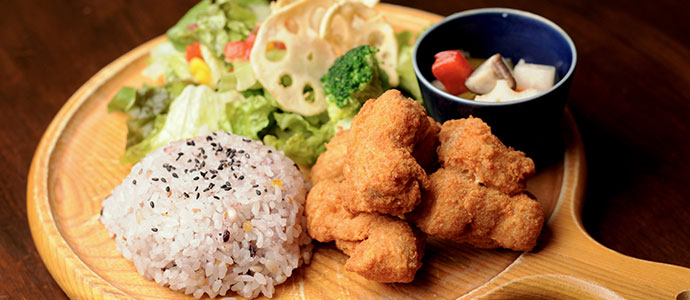
Offering Vegan Choices in Japanese Food Service
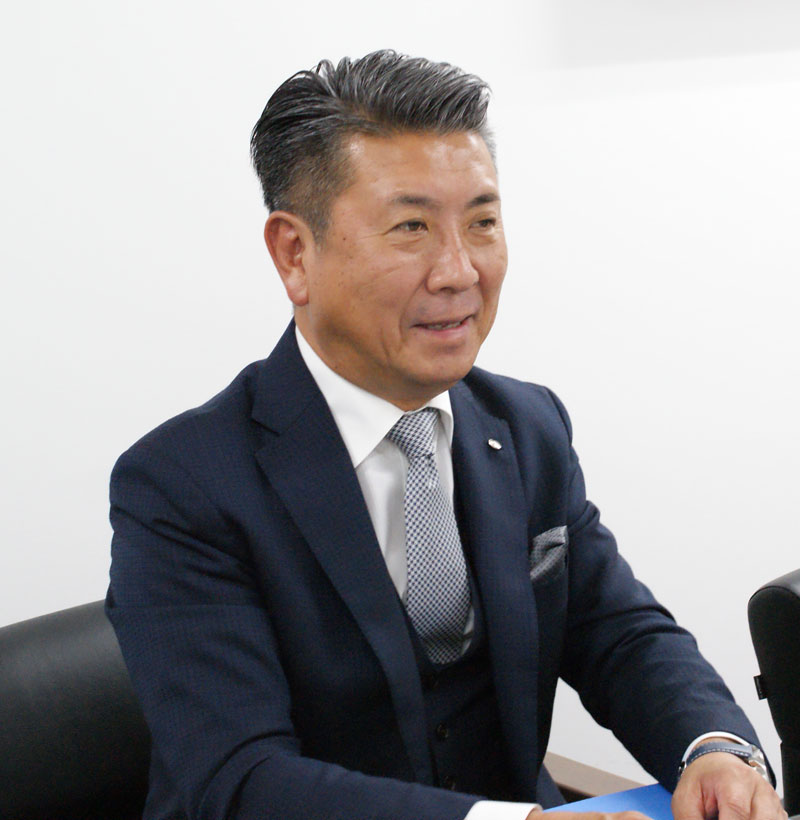 A growing number of restaurants offer vegan and vegetarian options. Now, in the food service industry that operates cafeterias in facilities such as offices, schools, and hospitals, a company has stepped up that is keen to provide vegan and vegetarian options.
A growing number of restaurants offer vegan and vegetarian options. Now, in the food service industry that operates cafeterias in facilities such as offices, schools, and hospitals, a company has stepped up that is keen to provide vegan and vegetarian options.
We interviewed Kiharu Wakou, President of Nikkoku Trust Co., Ltd., a comprehensive food service company which does business with 919 cafeterias and restaurants nationwide.
What is Nikkoku Trust’s main business?
We have two main business divisions. One is cafeteria business, which operates cafeterias in offices, factories, schools, hospitals, and the like, and the other is our restaurant operation, for dining out. Since we were founded in 1941, we have been making progress every day as a comprehensive food service company, bringing smiles and health to our customers.
What is the company’s mission, and your own mission as president?
First of all, as a company, our first goal is "Aspire to be a 100-year company!", by serving diversifying dietary culture and spreading new dietary culture through Japan. Personally, I came up on the sales side, so I value human ties and conciliation between people
Tell us about your company’s vision.
We are working in all sorts of ways towards becoming a company that can broadcast Japan’s new dietary culture to the world. One of those ways is developing vegan menu options based on Japanese food. The biggest characteristic of the vegan menus that we make is that we develop them for cafeterias, not for general restaurants.
Our vegan menu development was triggered by our support for the Meat-Free Monday movement promoted by Paul McCartney. That support made us more aware than ever before of sustainability and conservation of the global environment. We want to grow into a company that will be recognized even outside the industry - to have people think of Nikkoku when they hear the word “vegan” and create a clear link between these two.
The outlook is for 40 million foreigners to visit Japan in the Tokyo Olympics & Paralympics year of 2020, and 60 million in 2030. This is an age diversifying dietary needs, and increasing demand for serving those needs.
What is your company’s take on that environmental shift?
At Nikkoku Trust, we target all directions, providing hospitality to tourists in our restaurants, of course, but also serving meals that foreign workers in companies and factories will enjoy. A few years ago we acquired Muslim-friendly certification to be able to provide meals for Saudi Arabian trainees working at company offices and factories in Kyushu, and we have experience of providing cafeteria operation for such needs. In future, we want to disseminate new dietary culture as we continue to emphasize the needs of our customers.
Are you considering expansion overseas?
We used to do business in Angola and India, but now we only do in India. We are looking at expanding our business to new countries, based on the expertise in food service operations that we built up in Japan.
Please tell us about the organization of chefs and nutritionists that supports Nikkoku Trust
Of our 8,899 employees, 64 are expert chefs and professional cooks with national qualifications, 2,183 are cooks, and 1,046 are national registered dietitians and nutritionists. National registered dietitians and nutritionists are central, and we practice risk management in areas such as hygiene management and allergy handling.
Finally, what is your personal motto for life, or a favorite saying?
Maybe “Straightforward with those above, and with those below” and “Value all employees, including part-timers”. I say to company employees “let’s work with a straightforward feeling”.
“Straightforward with those above, and with those below” means that regardless of whether the other person is a superior or a subordinate, start with a reset to set aside any reservations and issues you may have with the people you work with, and really listen to what they have to say. That builds good human relationships and allows us to work with good feelings.
When I used to work in the kitchens, I was helped countless times by part-timers. Back when I first joined the company, the first place I was assigned to was a cafeteria kitchen. There weren’t any of the things like peeled and cut vegetables and pre-filleted fish that we have today, so the job was cleaning and ingredient preparation from morning to night. After that, I went through the positions of head cook and floor customer service, and the people who gave me kind words of encouragement from time to time were the parttimers. I think it was the support that I received from part-timers that made me who I am today. Other than that, I want to go on following the way of life of “living each day as if it might be my last”, as I have until now.

